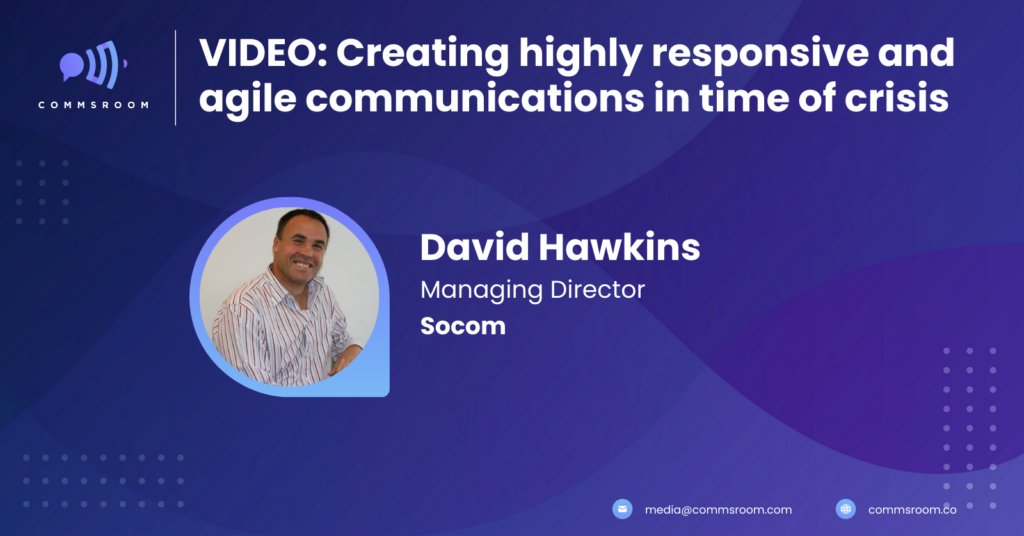- Have any questions?
- 02 7200 2179
- media@commsroom.co
- Have any questions?
- 02 7200 2179
- media@commsroom.co

Corporate communications officers, particularly those who do crisis response and reputation management often get a bad reputation, especially among the stakeholders that they serve.
The delicate balance between transparency and strategic messaging, coupled with the challenge of appeasing diverse audience expectations, can sometimes cast these communicators in an unfavourable light. That being said, the job of a crisis communicator is critical, as it can help reduce the impact of a crisis on the organisation and their impacted stakeholders.
In light of these challenges, Socom’s managing director David Hawkins provides a nearly step-by-step tutorial on how to craft an effective crisis communications response, from understanding how to communicate with purpose to providing tips for maximising engagement.
Hawkins emphasises the need to have genuine empathy as the cornerstone of a good crisis communications response.
“The basis of effective communication is genuine content, not empty air or spin,” Hawkins said.
“We can tell people what we are doing, we can tell people what we need them to do. Ultimately the goal is to reduce the negative impact on our organisation. And we can do that by reducing the negative impact on others,” he said.
Get full access to David Hawkin’s session recorded during the 6th Corporate Comms Leader Summit here.